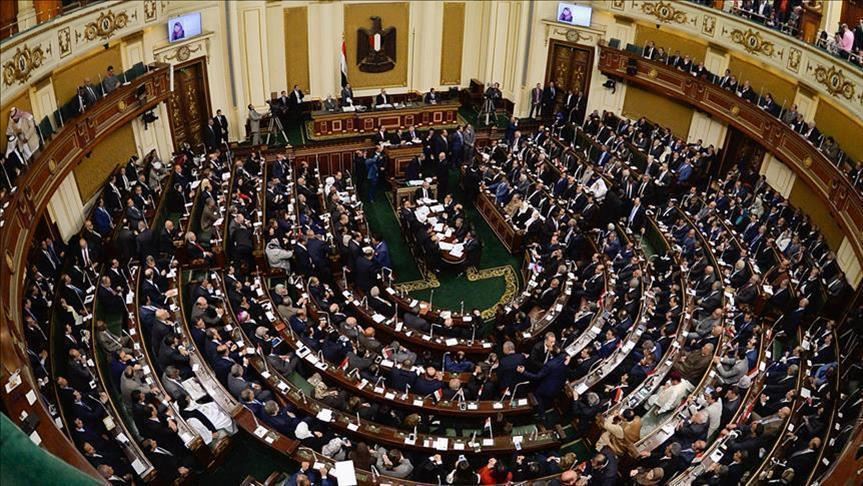July 11, 2019
Once General Abdel Fattah Al-Sisi was stable at the head of power in Egypt, another general emerged in Libya. Khalifa Haftar has announced his intention to overthrow those he describes as Islamists in the Libyan government.
Since his first appearance, Egypt has clearly supported Haftar and mobilised its Gulf allies to support him. However, in light of Haftar’s failure, Cairo appears to be about to lose Libya, its western neighbour. Egyptian support for Haftar was not hidden, as long as the Egyptian regime supported his forces in the east, the Libyan National Army.
Egypt supports Hafter for obvious reasons. His anti-government campaign against the Tripoli government, in which Islamists participate, is one of them. Al-Sisi’s regime has ousted the Islamists from power at home, and imprisoned their supporters.
Haftar is a military man, showing clear dictatorial tendencies, which means he will not embarrass the Egyptian regime. His arrival to power means the failure of the Libyan revolution and ends the hopes of the Egyptian youth, rather than seeing in a neighbouring country a successful revolution with democratic rule.
Despite Egyptian support for Haftar, his campaign against the Libyan capital Tripoli is clearly a military failure. His failure prompted the UAE, one of Haftar’s most important supporters, to look for an alternative leader. The UAE has alternatives in Libya, the most important of which is the former Libyan ambassador to Abu Dhabi, Aref Ali Nayed.
Haftar’s failure to extend his military control over the whole of Libya has made the UAE think in terms of a political solution which will bring Libyans together and which would not lead to a total loss in Libya.
The UAE’s alternative plan is a new Libyan government headed by Ali Nayed, which controls both Benghazi in the east and Tripoli in the west, within a compromise solution for the conflicting parties in Libya.
One of the Saudi alternatives, instead of supporting Haftar, is to use Saif al-Islam, son of the late Libyan leader Muammar Gaddafi. Several tribal leaders and former soldiers still owe allegiance to Gaddafi’s son.
The problem for al-Sisi’s regime is that for him, these alternatives were not on the table. Al-Sisi was betting on Haftar, and only Haftar.
Since he came to power, al-Sisi has not recognised middle solutions, or power-sharing agreements, only a military solution, and a total control of power.
Al-Sisi hopes to replicate the same in Libya, but the solutions offered by the UAE and Saudi Arabia do not include the arrival of a military man alone to power in Libya. The arrival of a military man would have enhanced the vision of the people of the region that any leader must be a military general.
Prior to the Tripoli operation, Cairo convinced Riyadh and Abu Dhabi that Haftar was capable of fully controlling Libya, despite skepticism from the Gulf. They supported Haftar wholeheartedly, along with France, who also wanted a strong military man in Libya.
Haftar’s recent failure and his defeat in Gharyan put the UAE and Saudi Arabia off listening to Cairo about Haftar.
Ali Nayed seems the most reasonable option for the UAE, especially since he comes from the west of Libya and enjoys the consent of tribes in the east. Ali Nayed worked with Gaddafi’s regime and participated in interfaith initiatives before moving to the UAE after the revolution and becoming ambassador. His name has been traded repeatedly by the Emirates as a candidate for prime minister.
Ali Nayed’s mission is not easy, as it must provide guarantees and solutions acceptable to the government in the west and its forces. But if he succeeds in becoming the Prime Minister of Libya, it means that Egypt has not completely lost Libya.
Ali Nayed’s success would ensure people within the government follow al-Sisi’s authority, but it also means the presence of men who oppose it. Do not forget that he supported Haftar in bombing their cities.
Haftar is not satisfied with Ali Nayed as he considers him a prelude to his removal from power, but he agreed under pressure from the UAE.
So far, the plan to promote Ali Nayed seems difficult and it means losing the best scenario for Cairo – a “new al-Sisi” in Libya.




Recent Comments